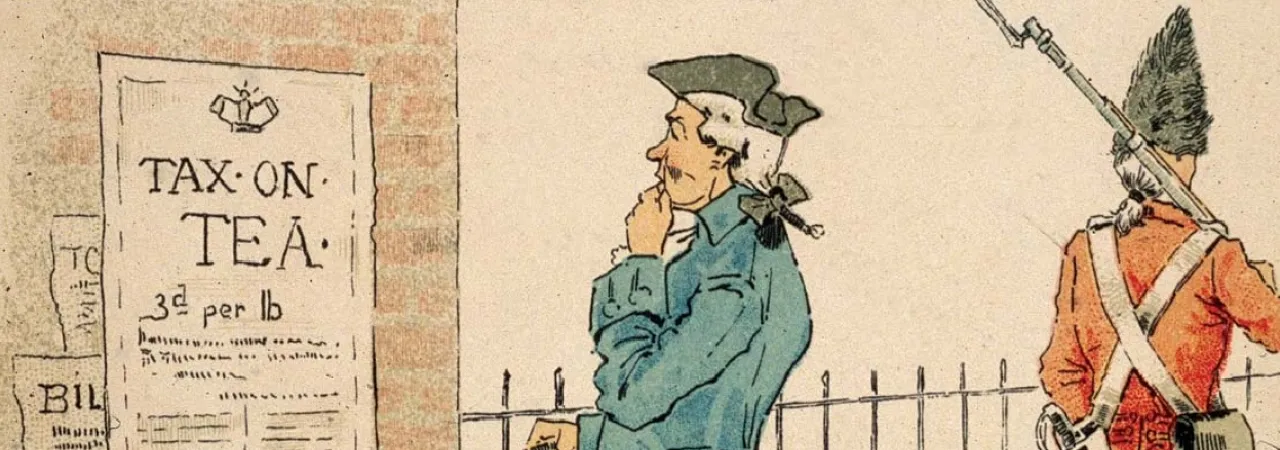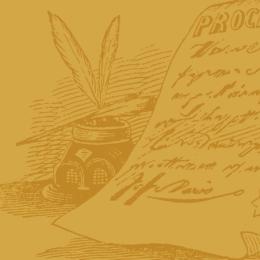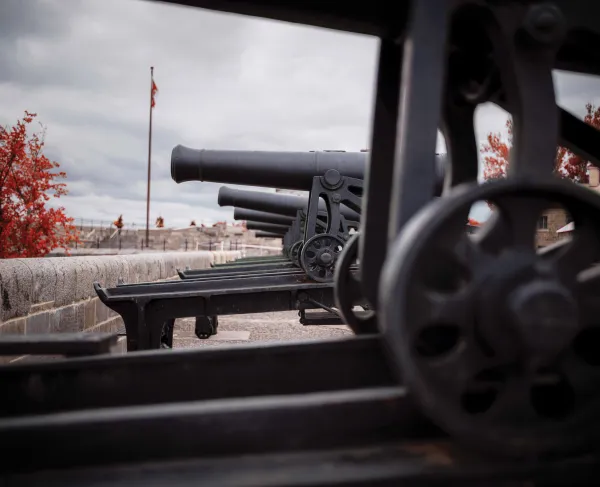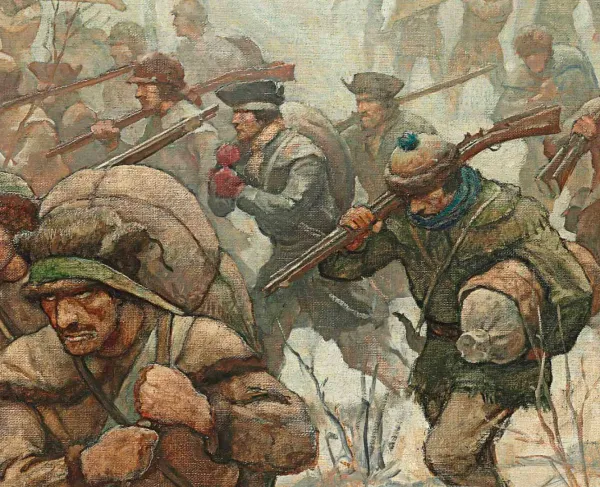
On June 29, 1767, the British Parliament passed an act that began as follows:
“AN ACT for granting certain duties in the British colonies and plantations in America; for allowing a drawback of the duties of customs upon the exportation from this kingdom, of coffee and cocoa nuts of the produce of the said colonies or plantations; for discontinuing the drawbacks payable on china earthen ware exported to America; and for more effectually preventing the clandestine running of goods in the said colonies and plantations.
WHEREAS it is expedient that a revenue should be raised, in your Majesty's dominions in America, for making a more certain and adequate provision for defraying the charge of the administration of justice, and the support of civil government, in such provinces as it shall be found necessary; and towards further defraying the expenses of defending, protecting and securing the said dominions…”
Parliament placed a tax on glass, paint, oil, lead, paper, and tea. These applied to imports into the North American colonies. Charles Townshend, the Chancellor Exchequer was the mastermind behind this set of taxes as a way to offset the debt burden brought on by the Seven Years War as well as a source of payment for the Crown troops now stationed in North America. The thought being that the American colonists would have a hard time producing the above-mentioned items themselves. Although there exists some disagreement about what acts fall under the heading of the Townshend Acts, the following five tend to be the ones in most agreed upon. They are listed below in the order the acts were passed by the British Parliament.
The New York Restraining Act, passed on June 5, 1767, strictly forbade the New York Assembly, including the governor of New York from passing any new legislation until complying with the Quartering Act of 1765. New York resisted this act, which ruled that the colony pay for and provide housing for any British troops within its border, as an overreach of Parliament. Using the no taxation without representation line, this act never reached implementation as the assembly did comply with the dictates within the allotted timeframe.
On June 26, Parliament passed the second act, the Revenue Act of 1767. This decree placed a tax on glass, lead, painters’ colors, and paper in addition to giving custom officials wide latitude to enforce the taxes and levy punishments on smugglers. In order to do so, custom officials could use a rule already in effect, “writs of assistance” which were general warrants to search private property. The writs waded into a gray area of legality as the right to secure one’s private property on their own property had already been an established right of every British citizen.
The Indemnity Act passed three days later reduced the taxes on imported tea from the East India Company. This was a major emphasis behind the Townshend Acts. The company, ranking as one of the largest in England, was facing calamity due to being undercut by smuggled tea, which was cheaper. The act ensured that there would be no further taxation on tea and dropping the overcall cost of East Indian Company tea. This made it a cheaper option than the smuggled variety which Townshend hoped would inspire American colonists to purchase East Indian tea instead.
Passed into legislation on the same day as the Indemnity Act, the Commissioners of Customs Act created a five-person Customs Board headquartered in Boston. Enforcement and regulating shipping were the two main tenets for the board. In time other port cities would see Customs Boards created as well. Placing these boards in cities in North America instead of relying on the same establishment back in England was slated to help with the tax collecting, cutting down on smuggling, and more speedy enforcement of shipping regulations. As the board began carrying out its functions obvious frictions with merchants and colonists became more common, especially in Boston. British troops, in the future, would need to be stationed in the Massachusetts city.
The fifth of the passed acts was the Vice Admiralty Court Act, although this passage did not come until July of 1768. In the interim Townshend had passed away unexpectedly the previous September and there is some debate about whether to include this act with the previous four under the Townshend Acts. The reason that this act is sometimes excluded in reference to the other acts was the fact that the Vice Admiralty Court Act was not passed by Parliament but by the Lords Commissioners of His Majesty’s Treasury. The consensus that the act should be included comes from the stipulations that the act announced, which is in the same general category of the four mentioned previously.
The act decreed that smugglers would be tried by the Royal Navy courts and not in colonial courts. Boston, Philadelphia, and Charleston, South Carolina were each awarded a vice admiralty court and the judges who presided over the cases were given 5% of any fines that were ruled to be paid by the convicted smugglers. Furthermore, the judges had full say as the vice admiralty court had no trial by juries. If the defendant could not make the trip to one of these three cities, which would also have to be covered by their own finances, then that individual was automatically found guilty.
There was also another motive behind the passing of these revenue acts. Townshend believed that the acts would kick-start a change in the colonial government by providing the money to pay the salaries for the royal governors and judges. With tying their salary into this act, Townshend believed their loyalty would be more to the British government and crown as a result.
However, like the acts of his predecessors and unfortunately repeated by his successors, Townshend misjudged the response in the colonies of Parliament’s new decrees. Within a month of the acts becoming law, on November 20, 1767, protests began to pop up on the British North American colonies. Townshend would not live to see the effects of his set of duties imposed on the British colonists, having died suddenly on September 4, 1767, of a fever in London.
Meeting in Boston at Faneuil Hall raised key questions that would frame the protest and objections over the Townshend Acts. Further exacerbating the tension was the deployment of British troops into Boston starting at the beginning of October. From Philadelphia came a collection of “Letters from a Pennsylvania Farmer” the pseudonym of John Dickinson. The basic tenant of Dickinson’s letters was the illegality of the acts raising revenue, which was a right decreed to colonial governments, not the British Parliament. Furthermore, he espoused the idea that “the cause of one is the cause of all” in response to the singling out of New York in the Townshend Acts. This will be used a rallying cry for colonial unity, as Dickinson will send a copy to James Otis, Jr., a prominent Boston lawyer and staunch advocate for patriotic motives, with the following sentiment, “whenever the Cause of American Freedom is to be vindicated, I look towards the Province of Massachusetts Bay.” Protests, negative reactions, and bubbling discontent will ripple down the Atlantic seaboard. Eventually, this would bubble up on the night of March 5, 1770, in Boston in what has been recorded ever since as the Boston Massacre. Ironically, on the same day that gunshots rang out over the city of Boston, Parliament had voted to repeal many of the acts associated with the overall Townshend Acts.
Even when some of the Townshend Acts were repealed by Parliament, the duty on tea remained and on a cold December night in 1773, colonists masked their identities and slipped aboard a ship in Boston Harbor to dump 342 chests of tea into the water. Known to history as the Boston Tea Party, this act, in protest, would engineer another set of taxes levied on Boston and Massachusetts known in the colonies as the Coercive Acts—which set off a chain of events heard around the world.
Further Readings
- The British Are Coming: The War for America, Lexington to Princeton, 1775-1777 By: Rick Atkinson
- Divided Loyalties: How the American Revolution Came to New York By: Richard Ketchum
- American Revolutions: A Continental History, 1750-1804 By: Alan Taylor






